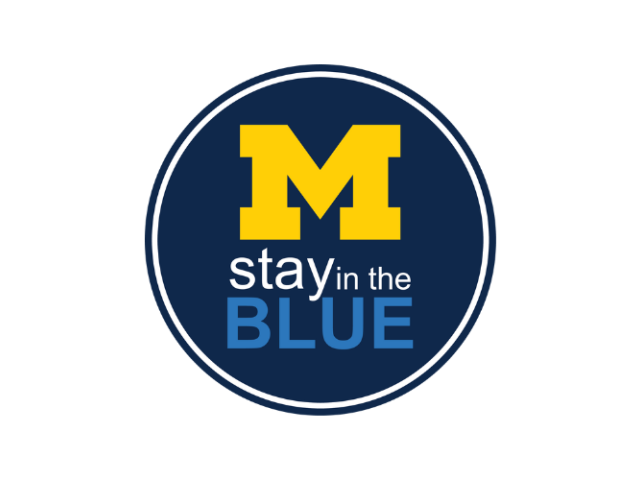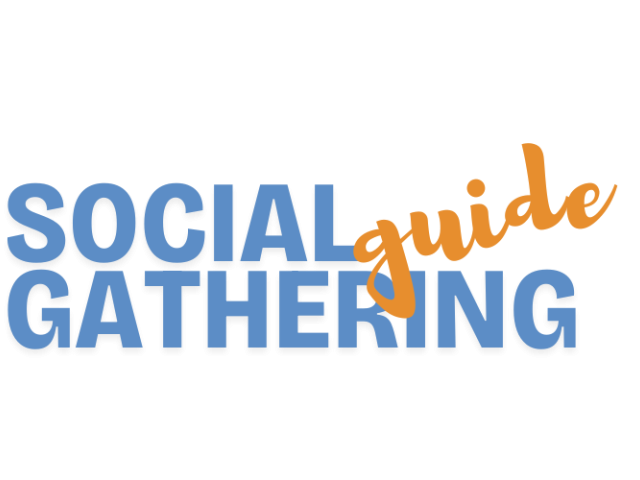Most U-M students don’t drink or drink at moderate levels (4 or fewer drinks on a single occasion). We know that drinking alcohol increases the risk of negatively impacting all dimensions of your well-being. If you choose to drink, use our campaigns and resources (designed with students for students) to make a plan that helps you get more of what you want out of drinking, while avoiding the things you don’t want.
If you’re concerned about a friend’s (or even your own) alcohol use, check out these support resources available around campus.
Combining Alcohol with Other Drugs
Combining medications (prescribed or not prescribed) with alcohol can have unpredictable and unwanted consequences, physically and/or legally. We can help ourselves, our friends, and our community by understanding the dangers and taking steps to prevent harm.
If you choose to drink:
- Talk to your doctor about how any drugs or medications you’re taking might interact with alcohol.
- Make your own drink whenever possible, and don’t leave your drink unattended
- If you don’t see your drink being made, don't drink it
- Avoid drinks that come from a common source (e.g. punch bowl, igloo container, jug)
- Use Stay in the Blue strategies to get more of what you want out of drinking with less of what you don’t want.
Cannabis & alcohol
Cannabis combined with alcohol can result in greater impairment than when using either substance on its own, leading to decreased motor control, reduced concentration, and slower reaction times.
Depressants & alcohol
Depressants (e.g., Xanax, Valium) combined with alcohol have a synergistic effect, with potential for dangerous and even lethal consequences, with rapid onset of dizziness, stumbling, loss of sphincter control, memory loss, and potential death.
Stimulants & alcohol
Stimulants (e.g., Ritalin, Adderall, Concerta) combined with alcohol conceal alcohol’s effects, so people cannot gauge their level of intoxication, which can result in over-consumption, e.g. significant impairment of coordination and judgment, blackout, pass out, and potential death.
Opiates & alcohol
Opiates (e.g., Vicodin, OxyContin, Tylenol 3 with codeine, Percocet) combined with alcohol can result in slowed or arrested breathing, lowered pulse and blood pressure, unconsciousness, coma, and potential death
Potential harm can happen in three ways:
- When people do not know that there are significant drug interactions and are caught by surprise when they inadvertently drink while using prescription medication
- When people knowingly combine alcohol with other drugs because they mistakenly believe it will be a “better” or “enriched” intoxication
- As a tool to facilitate a crime (sexual assault, robbery, etc) by making a victim incapacitated
Sex and Alcohol
Let's talk about sex. Using substances like alcohol, cannabis, and other drugs before and during hook-ups impacts our experience and relationship with the people involved. Thinking about what we want to get out of our sexual experiences and how substance use may or may not fit into those goals can lead to better sexual experiences for everyone involved.
What was your best sexual experience?
When we talk about a sexual experience, it could be defined any way you like, whether that’s as a kiss, intercourse, or anything else in between. For most people, sexual experiences are best when their bodies are free from drugs, including alcohol. This is also true for U-M students! Most U-M students say they have their best sexual experiences when they are sober or have at most 1-2 standard drinks in their system.
Being sober or drinking less leads to better sexual experiences
- When sober or with very low amounts of alcohol, people are more likely to be able to maintain an erection, to have adequate vaginal lubrication, and feel more heightened pleasurable sensations.
- Have trouble experiencing orgasm? Being sober makes orgasms more likely to happen.
- When you can communicate clearly (in other words, when you’re not confused or drowsy from alcohol), you can talk with partners about what you each like sexually. This can lead to greater satisfaction with the experience.
- Trying to avoid STIs and/or pregnancy? Being sober, or having small amounts of alcohol, can make it easier to stay on track with your goals for safer sex, consistent contraceptive use, and making deliberate choices about what sexual activities you want (or don’t want) to engage in.
Being sober helps promote respectful interactions between partners
- When you’re sober, it’s easier to think clearly about how you want to treat people. Being sober helps you remember to speak and act in ways that show your partners that you respect them and you’re in control of yourself.
- Think about the sexual activities you would or would not be interested in doing. Ask any potential partners about what they want and don’t want to do. And, while thinking about boundaries ahead of time may be helpful, it’s always OK to change your mind about what you want to do.
- Alcohol affects everyone differently, so being sober when giving and getting consent helps make sure that everyone involved is freely and deliberately choosing to participate in the sexual activity.
- Having sex only when everyone’s sober can safeguard your future goals by reducing the chance of legal or university disciplinary actions. Alcohol is the substance used most frequently used to facilitate sexual assault on college campuses. If everyone’s sober, your consent conversation will be much more likely to reflect everyone’s true desires about a sexual encounter.
Be mindful of drinking if sex may be in the picture
- If you choose to drink, see our Stay in the Blue page for ways to get what you want without what you don't. Download the app for quick connections to Uber and taxis to get home safely.
- Remember to bring the safer sex items you might need (like condoms, dental dams, and contraceptives) with you. Visit Wolverine Wellness (located in Suite 0245, on the ground floor of the UHS building) for free safer sex items.
- If you had unprotected sex and could get pregnant, consider Emergency Contraception.
- For confidential resources and support related to sexual assault, stalking, or sexual harassment, see the Sexual Assault Prevention and Awareness Center (SAPAC). For immediate assistance, call the SAPAC Crisis Line (24/7) at 734-936-3333.
Weather & Alcohol
Michigan experiences all 4 seasons. Hot or cold, this weather can impact your experience and well-being if you choose to drink. In addition to our Stay in the Blue strategies, use these tips to plan ahead for the best experience in all kinds of conditions.
No matter the weather, plan a safe way to get home. Call a rideshare (U-M students can access discounted late-night Lyft rides) or have a designated sober driver. Avoid using electric scooters if you’re under the influence of alcohol or other drugs. And travel with a buddy to make sure everyone safely gets where they’re going.
When in doubt, get help.
Cold weather
- Plan ahead. Make plans before an event to have non-alcoholic drinks, high-protein snacks, heat sources, and shelter from the elements available.
- Dress in layers. Dress for the weather in layers you can easily take off when you get inside, especially if you’ve been drinking. Alcohol makes your blood vessels expand, causing you to feel warmer than you really are, increasing the risk of hypothermia. Even if you feel warm, it’s important to keep your coat, hat, and gloves on when you’re outside to decrease that risk.
- Hydrate. Alcohol dehydrates, making it harder for your body to regulate cold temperatures. Alternate alcoholic drinks with water or other non-alcoholic beverages.
- Warm up. Limit your time outside or when you’re exposed to the elements. Take regular breaks inside or near outdoor heaters to give your body a chance to warm up.
- Know the warning signs of frostbite and hypothermia:
- Redness or pain on the skin — if left untreated, the skin may also become white or grayish-yellow and feel unusually firm, waxy, or numb
- Shivering
- Exhaustion
- Confusion
- Fumbling hands
- Memory loss
- Slurred speech
- Drowsiness
These could all be signs to move indoors, remove any wet clothing, warm up under dry layers and blankets, place any frostbite-affected body parts in warm water, and seek medical attention if symptoms are severe. Do not try to give alcoholic drinks to warm the person up!
Hot weather
- Plan ahead. Before an event, plan to have non-alcoholic drinks, high-protein snacks, sunscreen, and shade sources such as a hat, umbrella, or fan available.
- Hydrate. Alcohol dehydrates, making it harder for your body to regulate hot temperatures. Fill a cooler with lots of chilled non-alcoholic choices to have at an event and drink plenty of water, especially if you’re out in the sun.
- Spread out your drinking. Summer days are longer, which can lead to events that start earlier and go later. Set a drink limit, and then pace your drinking by starting with a non-alcoholic drink and alternating alcoholic and non-alcoholic drinks.
- Find the shade. Take regular breaks in the shade or indoors to give your body a chance to cool off.
- Don’t drink and swim. Alcohol impairs your judgment, balance, and coordination, making it harder to swim safely.
- Know the warning signs of dehydration, heat exhaustion, and heat stroke:
- Dizziness
- Nausea
- Rapid heartbeat
- Headaches
- Muscle cramping
- Confusion
- Clammy skin
- Feeling hot without sweating
These could all be a signal to move to a cool area, stop drinking alcohol, hydrate, rest, and seek medical attention if symptoms are severe.
Want to get involved in these campaigns?
Request Print & Digital Materials
Share our materials with your school or organization. You can also share ideas for future campaigns or sign up to participate in upcoming focus groups to test out new ideas through our request form!
Interested in continuing the conversation?
Sign up for wellness coaching!
Planning a program, workshop, or training? We offer virtual and in-person programming. Request a consultation or program or check out the Well-being Toolkit for more resources.
What’s too much?
Check out our AOD resources page and explore your relationship with alcohol and other drugs.



